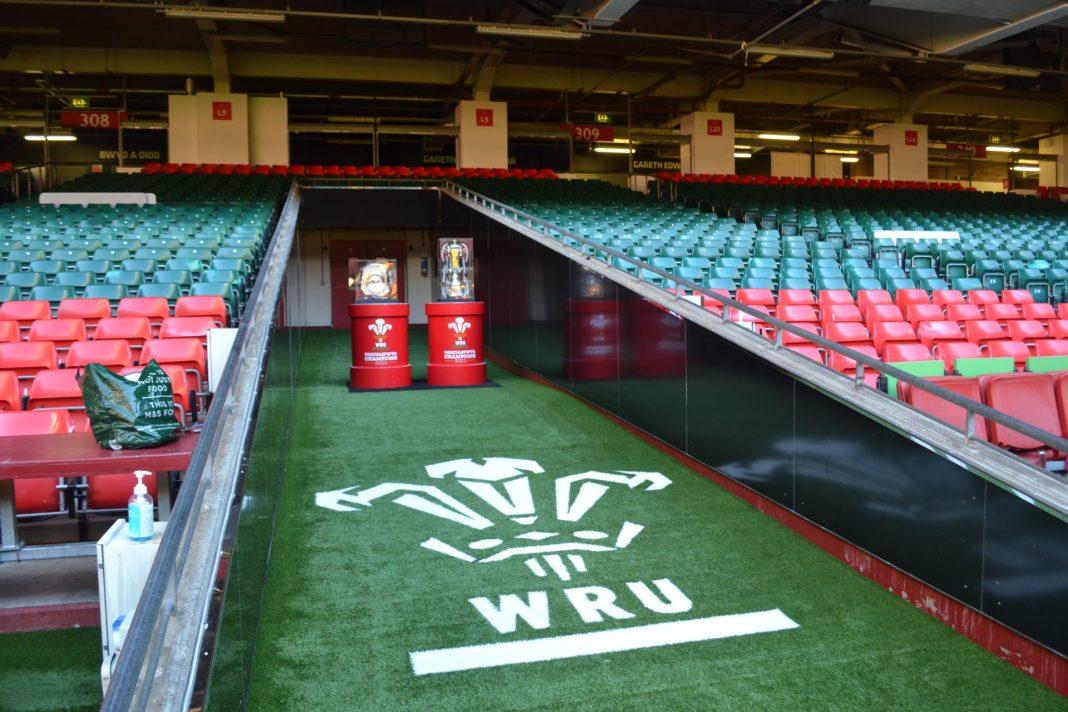Despite contrasting results, England and Wales’ most recent performances show that both sides have started to turn a corner and are ready to compete again
One of the most-touted maxims in the world of professional sport is that results come down to fine margins. There’s no better proof of this than Wales’ loss to Ireland on Saturday… is what I would have said had England not won by a single point for a second game in a row just a few hours later.
Following a record-extending fourteenth defeat in a row and the departure of Warren Gatland a couple of weeks ago, it’s fair to say that few expected anything other than an Irish victory – and a dominant one at that. Pundits’ forecasts were grim and Welsh fans took to social media to publicly tone down what were already-low expectations. All signs seemed to point towards a mauling at the hands of a rampant Ireland side.
Wales were resurgent and even went into the break with a slender lead courtesy of a score from Evergreen captain Jac Morgan. When Tom Rogers flung himself across the try line early on in the second half to make it 18-10, it looked like Wales might be able to pull off a truly miraculous victory after over a year of tumult.
However, Ireland showed their class to get back on level terms with 20 minutes left of play. Sam Prendergast notched a succession of quickfire penalties to put the visitors ahead. With time and optimism trickling away, Wales looked to be running out of ideas. All of a sudden, they found themselves on the front foot again. The impressive Ellis Mee jinked his way through the Irish defence and, at full stretch, slammed the ball down.
Wales had done it. Cue jubilant scenes – you could probably hear the roar of the crowd in Swansea. A sea of scarlet rippling with joy after snatching victory from the jaws of defeat. As quickly as the balance had swung one way, however, it swung back again. After a lengthy TMO review, it was adjudged that Mee had come up agonizingly short, the ball a whisker away from the try line. Wales were unable to recapture their momentum, as Prendergast drilled in another penalty to seal relief for the visitors and heartbreak for the home fans.
160 miles east of Cardiff, England enjoyed a different outcome after a much less inspiring performance in a game that also went down to the wire. Steve Borthwick’s side looked assured defensively, but faced all too familiar problems at the other end of the pitch, their attack spluttering and struggling to kick into gear despite the dynamism of Marcus Smith and co. on paper. Nevertheless, they emerged victorious at Twicken… I mean, the Allianz Stadium, even with the trademark Calcutta Cup try from Duhan van der Merwe that has so often spelled disaster for England in the past.
It was a game that England certainly would have lost just a few months ago. Cast your mind back to the achingly close encounters with New Zealand and South Africa last autumn. Even in their opening fixture of this year’s Six Nations, Borthwick’s men were edged out by Ireland after a lacklustre second-half display.
But now England look like they know how to win again. Their past two matches have been just as close, if not closer than those losses. The difference is that, against France and Scotland, they did just enough to come out on top.
Just as Mee was inches away from putting Wales back in front and setting them on course for victory, England were millimetres away from losing to the old enemy. The usually-reliable Finn Russell missed three conversions on Saturday, squandering a total of six points that could have seen his side come away from rugby’s oldest competition with a win, an unprecedented fifth in a row against England in the Calcutta Cup. These kicks were, admittedly, difficult but Russell has converted over 75% of kicks in his last five Six Nations campaigns. If any one of them were just a few centimetres to the left or right, it could have been a completely different story.
At face value, nothing has changed. England have won another game, while Wales’ number of losses continues to grow. But take a closer look at the performances themselves – how both games went down to the wire and were decided by the barest of margins – and similar stories start to emerge.
Steve Borthwick will be fully aware that he cannot rest on his laurels just yet. England look to be moving in the right direction again after a torrid autumn, but there are still issues that need to be addressed. Matt Sherratt also knows that there’s a lot on his plate. Despite losing again, though, the Welsh players looked revitalised, fighting tooth and nail for every metre, fully committing at every breakdown and flying into tackles. All signs point towards a blockbuster clash on the final weekend of the tournament when England travel to Cardiff, where they might be vying for the title, with Wales aiming to avoid a second successive wooden spoon.
Before the tournament, there was much speculation about this year’s edition of the Six Nations being the closest yet in terms of quality, especially in light of Antoine Dupont’s return and a genuinely competitive Italy side. All of the different nations seemed to be in with a shout except one – Wales. On Saturday, they showed that any reports of their demise have been over-exaggerated. With a new man at the helm and a renewed sense of pride, Wales are not far away from stopping the rot.


